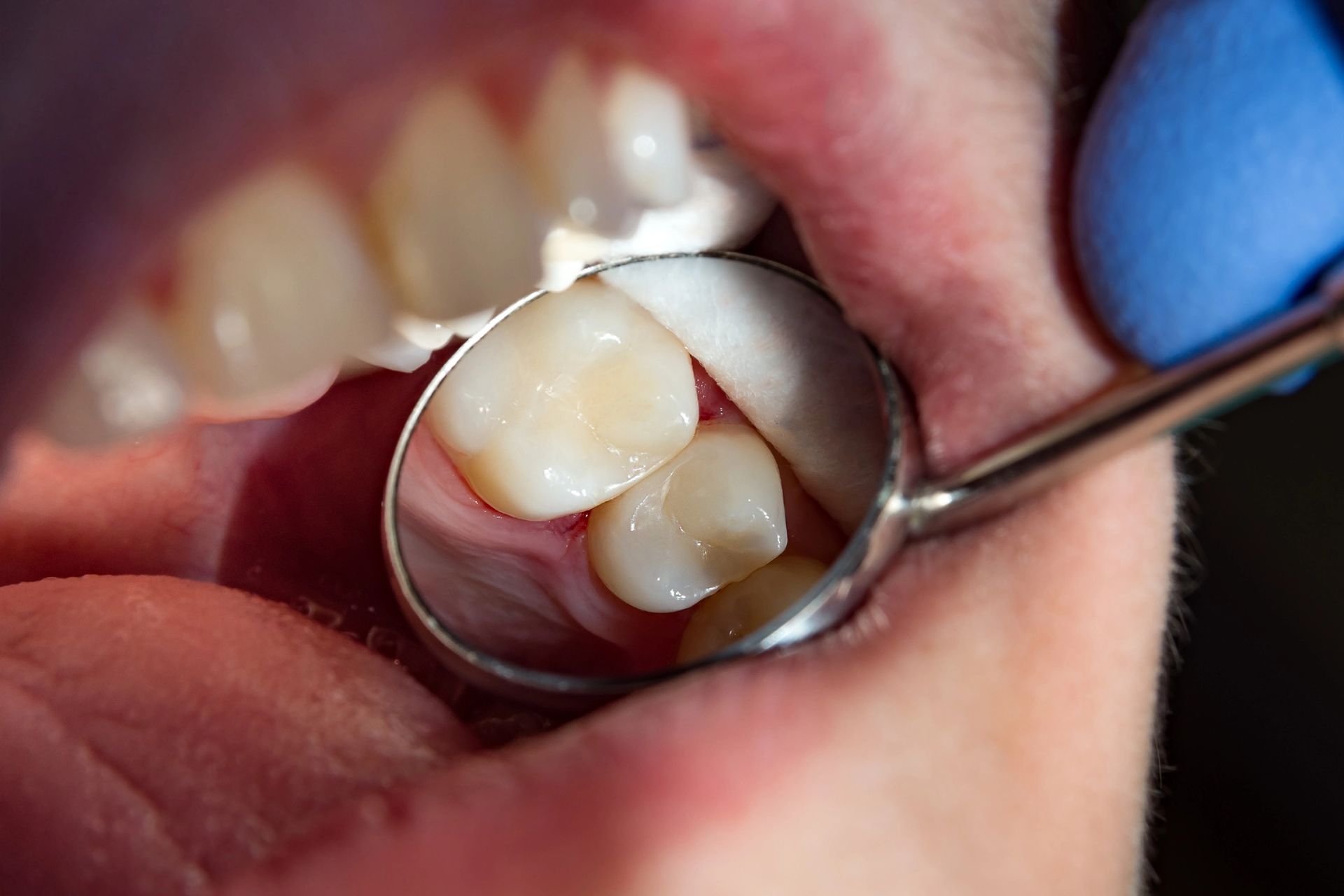
How Long Do Zirconia Crowns Last?
Zirconia crowns are renowned for their durability and strength, making them a popular choice for dental restorations. On average, zirconia crowns can last anywhere from 10 to 15 years, depending on various factors such as oral hygiene practices and the individual's lifestyle. The robust nature of zirconia material contributes to its longevity, providing a reliable solution for those seeking long-term dental restoration options. Understanding how long do zirconia crowns last can help individuals set realistic expectations for their dental care. While zirconia crowns are designed to withstand the pressures of daily use, their lifespan can be influenced by several factors, including the patient's oral habits and overall dental health. Regular dental check-ups and maintaining good oral hygiene can play a significant role in extending the life of these crowns. If you ever find yourself in a situation where your crown becomes dislodged, you might find it helpful to read more about what steps to take by visiting our page on Dental Crown Fell Off What to Do Next to Protect Your Tooth Factors affecting crown longevity The longevity of zirconia crowns can be influenced by several factors, which play a crucial role in determining how long do zirconia crowns last. One of the primary factors is the individual's oral hygiene practices. Regular brushing and flossing can help maintain the integrity of the crown by preventing plaque buildup and gum disease, which can compromise the crown's stability. Additionally, the skill and experience of the dental professional who places the crown can significantly impact its durability. A well-fitted crown is less likely to experience issues such as chipping or loosening over time. Another important factor is the patient's lifestyle habits. For instance, those who engage in teeth grinding or clenching may experience a shorter lifespan for their zirconia crowns due to the excessive pressure exerted on the dental work. Dietary choices also play a role; consuming hard or sticky foods can lead to wear and tear on the crown. Furthermore, regular dental check-ups are essential for monitoring the condition of the crown and addressing any potential issues early on. For those interested in exploring options for dental crowns, you can find more information about Affordable Dental Crowns Columbia by visiting our Affordable Dental Crowns Columbia page. Importance of Regular Dental Check-Ups Understanding how long do zirconia crowns last involves recognizing the crucial role of regular dental check-ups in maintaining their longevity. These appointments allow dental professionals to monitor the condition of your crowns, ensuring they remain in optimal shape and function. Regular check-ups can help identify any potential issues early, such as wear or damage, which might affect the lifespan of your zirconia crowns. By keeping up with these visits, you contribute to the overall health of your dental work and ensure that your zirconia crowns continue to serve you well over time.Role of Oral Hygiene Practices The longevity of zirconia crowns is significantly influenced by the role of oral hygiene practices. Maintaining a consistent and thorough oral care routine can help ensure that zirconia crowns last as long as possible. Regular brushing and flossing are essential to prevent plaque buildup, which can lead to gum disease and affect the stability of the crowns. Additionally, routine dental check-ups play a crucial role in monitoring the condition of the crowns and addressing any potential issues early on. Understanding how long do zirconia crowns last involves recognizing the impact of daily oral hygiene habits on their durability. For those in Columbia seeking more information, Design Dentistry Columbia offers insights into maintaining dental health, and you can learn more by visiting your local Columbia Dentist.
Impact of Dietary Habits
Dietary habits can significantly influence how long zirconia crowns last. Consuming a diet high in sugary foods and acidic beverages may contribute to the wear and tear of dental restorations, including zirconia crowns. These dietary choices can lead to an increased risk of decay around the crown margins, potentially compromising their longevity. On the other hand, a balanced diet that supports overall oral health can help maintain the integrity of zirconia crowns over time. Understanding the relationship between diet and dental health is essential for those looking to maximize the lifespan of their zirconia crowns.Influence of Teeth Grinding
Teeth grinding, also known as bruxism, can significantly impact how long zirconia crowns last. This involuntary habit exerts excessive pressure on dental restorations, including zirconia crowns, potentially leading to premature wear or damage. While zirconia is renowned for its durability and strength, the constant grinding motion can compromise its longevity over time. Understanding the effects of teeth grinding is crucial when considering how long zirconia crowns last, as it highlights the importance of addressing underlying dental habits that may affect their lifespan.Professional Cleaning Frequency
Understanding the professional cleaning frequency is essential when considering how long do zirconia crowns last. Regular dental check-ups play a crucial role in maintaining the longevity of zirconia crowns. During these visits, dental professionals can assess the condition of the crowns and perform necessary cleanings to prevent plaque buildup and other potential issues. While the specific frequency of professional cleanings may vary based on individual needs, maintaining a consistent schedule with your dentist ensures that zirconia crowns remain in optimal condition, contributing to their durability and lifespan.Signs of Crown Wear and Tear
Understanding the signs of wear and tear on zirconia crowns is essential for anyone curious about how long do zirconia crowns last. Over time, you might notice subtle changes such as slight discoloration or a dulling of the crown's surface, which can indicate natural aging. Additionally, small chips or cracks may appear, especially if the crown has been exposed to excessive force or grinding. These signs can serve as indicators that the crown is experiencing normal wear, which is a factor in determining its longevity. Regular dental check-ups can help monitor these changes and assess the overall condition of your zirconia crowns.htmlWhen to Consult a Dentist
Understanding how long do zirconia crowns last is essential for maintaining optimal oral health. While zirconia crowns are known for their durability and longevity, regular dental check-ups are crucial to ensure they remain in good condition. If you notice any discomfort, changes in bite, or visible damage to your crown, it may be time to consult a dentist. Regular professional evaluations can help identify potential issues early, ensuring that your zirconia crowns continue to function effectively and maintain their aesthetic appeal over time.Conclusion
Understanding how long do zirconia crowns last is essential for maintaining a healthy smile. For more information, call 803-408-7163 or [read reviews on Google Maps](https://maps.app.goo.gl/Mn6Pt8Sw7v1e67Za8).

Have you ever wondered how much tooth fillings cost? The price can vary widely depending on factors such as the material used and the complexity of the procedure. Generally, costs are influenced by the dentist's location and whether you have dental insurance.
Types of Tooth Fillings
The tooth fillings cost can vary significantly depending on the type of material used for the filling. Common materials include amalgam, which is a mixture of metals, and composite resins, which are tooth-colored and offer a more natural appearance. Each material has its own set of characteristics in terms of durability, aesthetic appeal, and application process, which can influence the overall cost of the procedure.
Other materials used for tooth fillings include gold and ceramic. Gold fillings are known for their durability, while ceramic fillings are appreciated for their aesthetic quality that closely matches natural tooth color. The choice of material not only affects the tooth fillings cost but also impacts how well it will perform over time under the wear and tear of daily use. For more detailed information on the different types of fillings, you can visit What are the best tooth fillings available?
Factors Influencing Filling Costs
The cost of tooth fillings can vary widely depending on several factors. One of the primary determinants of tooth fillings cost is the material used. Common materials include amalgam, which is often less expensive, and composite or porcelain, which can be pricier due to their color-matching properties and aesthetic appeal. Additionally, the size and location of the cavity being filled also play crucial roles in determining the price. Larger fillings that require more material and time will generally be more costly than smaller ones.
Another significant factor is the dentist's experience and geographic location. Typically, dental practices in urban areas with a higher cost of living might charge more for the same services than those in more rural areas. The complexity of the procedure itself can also impact the cost, as more complicated procedures require advanced skills and longer appointment times. Understanding these variables can help explain the range in prices for dental fillings. For more detailed information on options available in your area, consider visiting Best Columbia Tooth Fillings.
Average Cost by Filling Type
The tooth fillings cost can vary significantly depending on the type of material used for the filling. Generally, amalgam fillings, made from a mixture of metals, tend to be the most affordable option. Composite fillings, which are designed to match the color of your teeth, are usually more expensive than amalgam. On the higher end of the cost spectrum are gold and porcelain fillings, which not only offer aesthetic benefits but also tend to be more durable. The choice of material impacts the overall cost of the procedure, influencing the financial investment required for dental fillings.
Dental Insurance Coverage
The cost of tooth fillings can vary widely depending on several factors, including the type of material used and the complexity of the procedure. However, a significant aspect that can affect how much you pay out-of-pocket is dental insurance coverage. Most dental insurance plans cover a portion of restorative procedures like fillings, but the level of coverage can differ from one policy to another. It's important to check with your insurance provider to understand what portion of the tooth fillings cost they cover and what your financial responsibility will be. For more detailed information, consider consulting with a professional like those at Columbia Dentist.
Geographic Variation in
Prices
The cost of tooth fillings can vary significantly depending on where you live. In larger cities or metropolitan areas, the tooth fillings cost might be higher due to increased overhead expenses for dental practices, such as rent and salaries. Conversely, in smaller towns or rural areas, the cost might be lower. This geographic variation in prices reflects the differing economic conditions and the availability of dental services across various regions. Therefore, when considering the cost of tooth fillings, it's important to take into account the location of the dental practice.
Cost Comparison: Amalgam vs Composite
When considering the tooth fillings cost, it's essential to compare the two most common materials used: amalgam and composite. Amalgam fillings, made from a mixture of metals, are typically less expensive, costing between $50 to $150 per filling. On the other hand, composite fillings, which are designed to match the color of your teeth for a more natural appearance, range from $90 to $250 per filling. The choice between amalgam and composite fillings not only affects the aesthetic result but also impacts the overall cost of your dental treatment.
Payment Options for Dental Care
When considering the tooth fillings cost, it's essential to explore the various payment options available for dental care. Many dental clinics offer flexible payment plans, allowing you to spread the cost over several months. Additionally, dental insurance might cover a significant portion of your tooth filling expenses, depending on your policy. For those without insurance, looking into third-party financing options such as CareCredit can also be beneficial. Always check with your dental provider about any available discounts or membership programs that could further reduce your out-of-pocket expenses.
Longevity and Cost Effectiveness
When considering the tooth fillings cost, it's essential to factor in both longevity and cost-effectiveness. Dental fillings, while initially a financial investment, can prove economical over time due to their durability. The lifespan of a filling depends largely on the material used—amalgam fillings can last up to 15 years, while composite fillings might need replacement after 5 to 10 years. By choosing a material that suits your needs and budget, you can maximize the cost-effectiveness of your treatment, ensuring that the tooth fillings cost provides value through lasting dental health.
Additional Dental Procedures Costs
When considering the overall tooth fillings cost, it's important to also factor in the prices of additional dental procedures that might be necessary. Depending on the extent of tooth decay or damage, procedures such as dental crowns, root canals, or even tooth extractions may be required. These treatments can significantly affect the total cost. For instance, a dental crown can add anywhere from $500 to $3,000 to your bill, while a root canal might cost between $300 and $2,000, depending on the complexity and the tooth involved. Always consult with your dentist to get a detailed breakdown of costs and ensure that all potential treatments are considered in your dental care plan.
Conclusion
Understanding tooth fillings cost can vary, so it's important to discuss your specific needs. Call us at 803-573-4577 or read our reviews on Google Maps.







